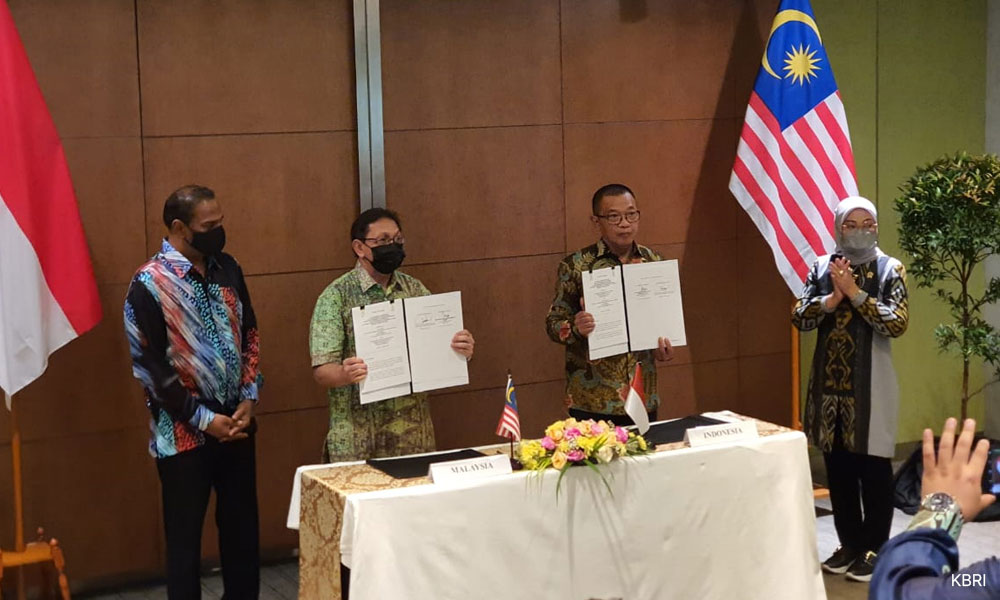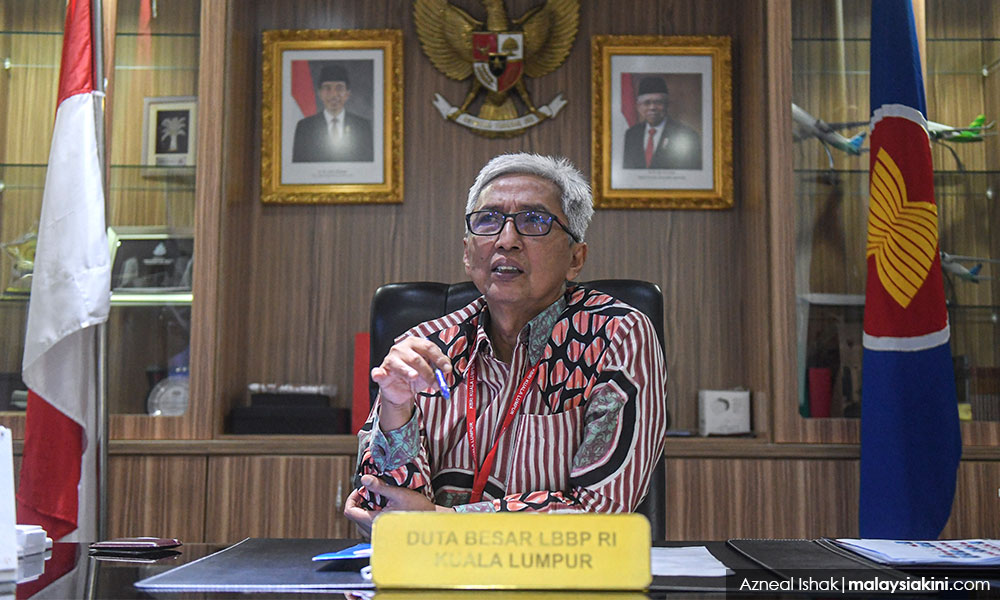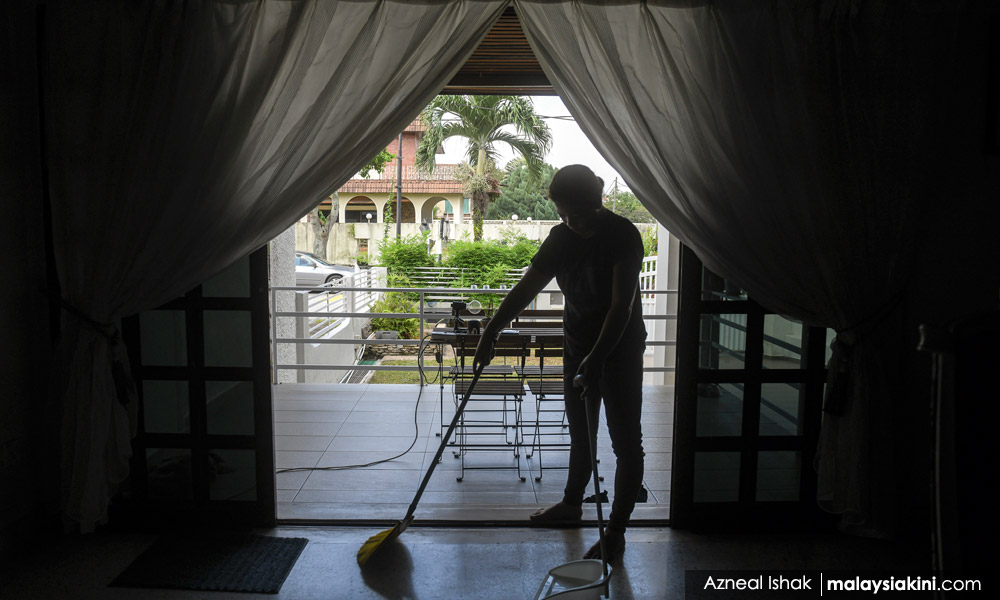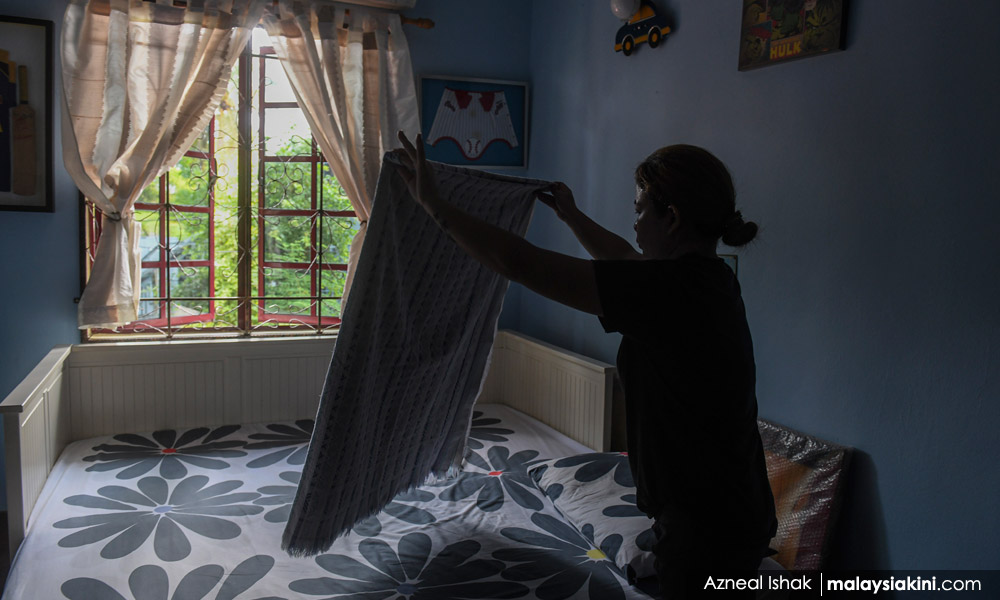A 95 percent dropout of initial applications to hire Indonesian domestic workers in Malaysia has the republic worried that a large number of its citizens are still being smuggled into Malaysia, said its ambassador to Malaysia, Hermono.
“These statistics are very worrying,” said Hermono (above), who, like many Indonesians, goes by a single name.
“At least 65,000 job orders have fallen through and we are investigating what has caused these applicants to abandon the processes of getting an Indonesian domestic worker.
“We received 65,850 job orders but only 3,150 employment contracts have been signed.
“We are also trying to identify gaps in the application process which begins with a job order for a domestic worker and concludes with an employment contract between the parties involved,” he explained.
The total number of job orders reflects applications that have flooded the embassy since the new Memorandum of Understanding (MOU) on the Employment and Protection of Indonesian Domestic Workers came into effect last August.
Domestic workers black market
Indonesia and Malaysia last April inked the MOU, which introduced the new maximum recruitment fee of RM15,000 and a minimum monthly wage of RM1,500.

However, in recent weeks, there have also been appeals for the maximum recruitment fee to be dropped.
Hermono confirmed that Jakarta relented to studying this possibility but told Malaysiakini that employers should urge their agents to negotiate the fee with their Indonesian counterparts instead.
Estimating that the fee could drop to as low as RM8,000 per worker, depending on the business-to-business negotiations between agencies from both countries, Hermono assured Indonesia would not interfere with these transactions if they remained below RM15,000.
However, no matter how low the maximum fee, Hermono conceded that the process could not compete with the fees offered in the “black market” or illegal channels.
“So, our main concern is addressing these illegal channels,” he said.

Banned immigration portal in use
The Indonesian government is bound by its domestic law to ensure the welfare of its citizens working abroad is sufficiently protected.
Although the MOU was not legally binding in Malaysia, the republic stressed its importance by imposing a temporary labour freeze last year when clauses were flouted.
The labour freeze was imposed owing to the Malaysian Immigration Department’s continued use of an online recruitment system - Maid Online System (MOS) - which was banned in the latest bilateral agreement for hiring domestic workers.
Indonesian workers make up a sizeable force in the plantation and domestic worker sectors, and the freeze brought both parties quickly back to discussions on hiccups faced during the early days of implementation.
Following fresh talks, the two countries agreed that the previously banned recruitment portal linked to allegations of trafficking and forced labour of domestic workers would be the official portal to link up with Indonesia’s system to complete the One-Channel System, with a prerequisite that all applications were only processed through this digital link-up.
Anything processed outside the One-Channel System was deemed illegal under the recruitment deal.
In the past, Malaysians would also recruit their domestic workers by travelling to Indonesia to source for someone suitable and bring them into the country on a tourist visa.

However, as part of the new deal, the practice of transporting a worker on a tourist visa to be converted into a work permit post arrival was one “bad habit” the MOS had to shed as it left workers vulnerable to forced labour conditions.
This was because the whereabouts of the workers would be unknown to the Indonesian government when they “disappeared” into Malaysian homes with no means of regularly ensuring workers were not being exploited.
The MOU on the hiring of domestic workers was designed to improve their safety and welfare.
New cross-border policing MOU soon
Meanwhile, the two countries will soon enter into a new MOU, which aims to take the fight against human trafficking to the transnational criminal organisations running the rackets in the Southeast Asian region.
Negotiations on a new MOU on the Cooperation in Preventing and Combating Transnational Crimes and Enhancing Capacity Building had concluded and were pending its launching date.
Once in force, Hermono was optimistic that their joint technical efforts would be more fruitful in nabbing people trafficking and smuggling syndicates.
“We are just awaiting a date for the MOU between the Indonesian National Police and Malaysian Home Ministry to be signed.
“The two countries had finalised key areas of the MOU that would enhance their joint multi-agency approach to tackling people smuggling and trafficking more effectively,” he said.

Earlier, Hermono had revealed that the new MOU was aimed at tackling all crimes listed as transnational crimes by the United Nations Office on Drugs and Crime and the initiative is being led by the Indonesian National Police.
Therefore, the bilateral pact would also address drug trafficking, money laundering, trafficking firearms, counterfeit goods, wildlife, and some aspects of cybercrime.
The two neighbouring countries have a long history of combating transnational crime together, with the earliest bilateral cooperation being an extradition treaty inked in 1974.
Two other early agreements are the Mutual Legal Assistance in Criminal Matters and the MOU between the police forces to combat Trafficking in Narcotics, which also aimed to enhance their cooperation. - Mkini



No comments:
Post a Comment
Note: Only a member of this blog may post a comment.